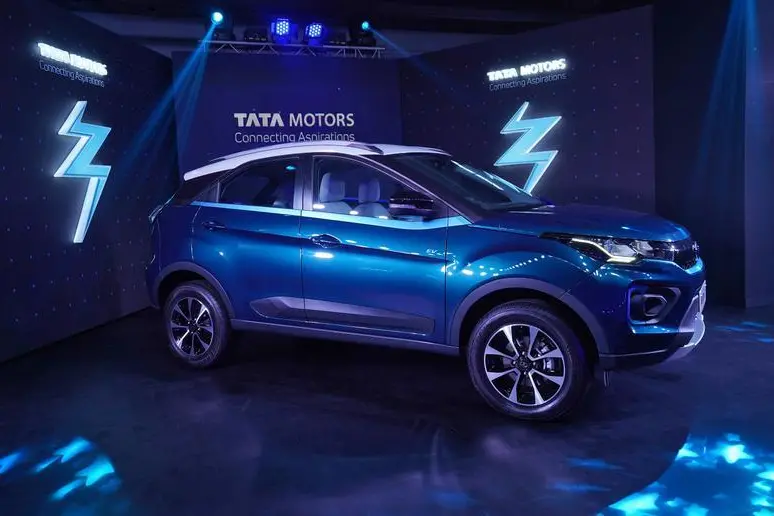PHOTO
MUMBAI - Zero-emission cars will be a road test of conglomerate power. Tata is drawing on expertise from across its $160 billion empire to support an electric vehicle initiative. Patriarch Ratan Tata attended Tuesday’s unveiling of the Nexon EV in Mumbai along with bosses of more than a half-dozen related companies. If the plan works, it could deliver rare and valuable synergies.
The bold strategy signals a strong commitment to turn Tata Motors into a force in green cars. The Indian government, keen to reduce pollution and high oil import bills, wants 30% of new passenger vehicles sold to be electric by 2030, up from less than 1% of the 3.4 million sold in the year to March. But they are already popular for fleet customers and volumes will rise as battery costs fall and more models become available. China’s Great Wall Motors, for example, is widely expected to roll out a super-cheap model in India next month.
Tata’s collaborative effort should help accelerate sales. Tata Power, for example, will have 650 charging stations across the country over the next year. Owners of Tata-branded cars will have priority access and tariffs. Meanwhile, Tata’s partnerships should in theory be less messy than the sorts of outside deals struck by Tesla with Panasoni and General Motors with LG Chem.
The Indian group is tapping many parts of the realm, allowing it to move faster. Tata AutoComp will assemble power packs, retail chain Croma is set to sell vehicles to its electronics customers and Tata Motors Finance will provide flexible financing. Tata Consultancy Service has built an app to make related payments and more. Tata Chemicals will explore recycling batteries, but the group won’t have any obvious advantage in the global race to secure critical raw materials cobalt and lithium.
Even so, it’s a potentially lucrative way to extract value from a sprawling outfit. Few beyond entertainment powerhouse Walt Disney have mastered the form. Tata is tightlipped on how much money its various divisions are investing in the electric-vehicle push. In a fast-moving industry, though, Tata will need to ensure its “in-house” partners and suppliers stay competitive on quality and price. It’ll be a corporate triumph to get the project humming on all cylinders.
CONTEXT NEWS
- India’s Tata Motors on Jan. 28 unveiled the Nexon EV, an electric sport utility vehicle that will have an introductory price of 1.39 million rupees, or roughly $19,600.
- The carmaker outlined how companies from the wider Tata group, including Tata Chemicals, Tata Power and retail chain Croma, will support the push into electric cars by recycling batteries, setting up charging plants and selling vehicles to consumer electronics customers.
- Tata Power already has 100 charging stations and plans to grow its footprint to over 650 in one year, covering all major cities and key highways. An app to check for the availability of chargers was developed with Tata Consultancy Services.
- Tata Motors plans to roll out four additional electric models over the next two years.
(Editing by Jeffrey Goldfarb and Katrina Hamlin) ((una.galani@thomsonreuters.com; Reuters Messaging: una.galani.thomsonreuters.com@reuters.net))





















